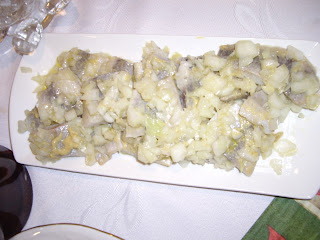Definition: Holy Week is the week preceding Easter and the final week of Lent. Holy Week begins with Palm Sunday and ends with Holy Saturday, the day before Easter Sunday. Holy Week includes Holy Thursday (also known as Maundy Thursday) and Good Friday, which, together with Holy Saturday, are known as the Triduum. Before the revision of the liturgical calendar in 1969, Holy Week was the second week of Passiontide; in the current calendar, Passiontide is synonymous with Holy Week. During Holy Week, Christians commemorate the Passion of Christ, Who died on Good Friday in preparation for the sins of mankind, and rose on Easter Sunday to give new life to all who believe. Thus, while Holy Week is solemn and sorrowful, it also anticipates the joy of Easter through the recognition of God's goodness in sending His Son to die for our salvation. SourceOn Palm Sunday (Niedziela Palmowa), Poles bring their “palms” to church for blessing. Since there are no actual palm trees in Poland, the “palms” are made from pussy willows, colorful paper, and other greenery. Check out this great description of “palm” tradition here.
On Good Friday, the local firemen begin the watch next to the tomb of Jesus. Having done the watch as a teenager, I remember how important it was for us to walk the line and keep the straight pose while holding the swords being dressed up i the official uniforms. I got a little pale during my turn but that's a story for another time.
On Holy Saturday, everyone attends the morning blessing of the food baskets (koszyk ze święconką). Kids prepare painted eggs (pisanki or kraszanki) using wax or boiling eggs in the onion peels. Depending on the region, the eggs can be decorated with all kinds of color paper. Hollow eggs (wydmuszki) are particularly crafty to make since one must drill small holes in the eggs to remove the yolk before decorating the fragile shell. Besides eggs, baskets usually contain salt, pepper, white or dark sausage, lamb made out of butter, wine, ham, horseradish, and yeast or coffee cake.
If you haven't had a white Polish sausage, trust me, you will enjoy it immensely. In fact, you might not go back to your regular sausage. Interestingly, many catholic churches in the United States, especially ones with a significant Polish or Polish-American population, adopted the food basket blessing tradition allowing the Americans to enrich their culture.
Take a look at the baskets from my church on Holy Saturday. Afterwards, the kids had a blast with the Easter egg hunt.
During the Easter Sunday lunch, right after the mass celebration, everyone at the table must taste at least a little bite of every blessed food before starting the Easter feast. Among regional dishes, traditional Polish Easter tablet should have: vegetable salad (sałatka jarzynowa), white borscht (biały barszcz or żurek wielkanocny) served with eggs, smoked bacon slab (boczek wędzony), deviled eggs (jajka faszerowane), white Polish sausage (biała kiełbasa), baked ham (szynka pieczona) Growing up in Poland, I still remember the smell of poppy seed roll (makowiec), yeast cake with plums (placek drożdżowy ze śliwkami), and classic cake (babka).
But wait, there’s more! In Poland, Monday after Easter is known as Wet Easter Monday (Śmigus-Dyngus aka Lany Poniedziałek), where boys spray the girls with buckets of water. You start as a little kid with little egg-shaped squirters and move on to empty dishwasher liquid bottles to finally end up with a 20 liter bucket as a teenager. The firemen also get some action with their hoses. Check out the video! Yes, sometimes the fun gets out of control but it’s only one day a year so girls are forgiving. 2013 Wet Easter Monday will be substituted with a snowball fight since there is 15 cm of snow in most parts of Poland. Snow Easter bunnies are also planned so that will be interesting.
So there you have it, Polish Easter in a nutshell. If you want to add your traditions or foods, please contribute. Thanks.







